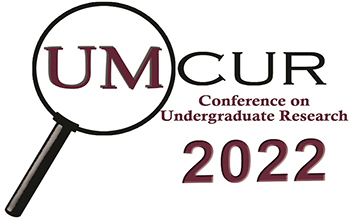A Means to Oppression and Resistance: An Examination of the Role of Rum in Jamaican Slavery During the Late Eighteenth Century
Presentation Type
Presentation
Faculty Mentor’s Full Name
Claire Arcenas
Faculty Mentor’s Department
History
Abstract / Artist's Statement
Across human history, alcohol has operated as a driving force behind the development of economies, societies, and historical events. In the eighteenth century, sugarcane was produced on a massive scale in the Caribbean on slave plantations and then went through a distillation process to become the consumable currency that is rum. This liquid gold was used to purchase anything from more alcohol to human beings. Jamaica, colonized by the British in 1655, was one of the main sources of sugar cane and thus became one of the most chief colonies for the production of rum. My paper explores the place and role of rum in Jamaican slavery. More specifically, I focus on the question of how rum affected the relationship between the enslaved and the enslavers in Jamaica and how it affected the daily lives of enslaved Jamaicans. It draws on my research into primary sources such as British newspapers, slave narratives, fugitive advertisements, and records regarding Jamaican rum plantations. It also draws on previous scholars’ work on the relationship between alcohol and slavery in the British Americas. Rum, slaves, and the Caribbean all are intertwined in a deep relationship, but many of the complex aspects remain woefully under-explored. My overall objective will be to display the effect producing and interacting with rum had on the daily lives of the enslaved and how rum simultaneously aided and inhibited their freedoms of autonomy and expressions.
Category
Humanities
A Means to Oppression and Resistance: An Examination of the Role of Rum in Jamaican Slavery During the Late Eighteenth Century
UC 330
Across human history, alcohol has operated as a driving force behind the development of economies, societies, and historical events. In the eighteenth century, sugarcane was produced on a massive scale in the Caribbean on slave plantations and then went through a distillation process to become the consumable currency that is rum. This liquid gold was used to purchase anything from more alcohol to human beings. Jamaica, colonized by the British in 1655, was one of the main sources of sugar cane and thus became one of the most chief colonies for the production of rum. My paper explores the place and role of rum in Jamaican slavery. More specifically, I focus on the question of how rum affected the relationship between the enslaved and the enslavers in Jamaica and how it affected the daily lives of enslaved Jamaicans. It draws on my research into primary sources such as British newspapers, slave narratives, fugitive advertisements, and records regarding Jamaican rum plantations. It also draws on previous scholars’ work on the relationship between alcohol and slavery in the British Americas. Rum, slaves, and the Caribbean all are intertwined in a deep relationship, but many of the complex aspects remain woefully under-explored. My overall objective will be to display the effect producing and interacting with rum had on the daily lives of the enslaved and how rum simultaneously aided and inhibited their freedoms of autonomy and expressions.
